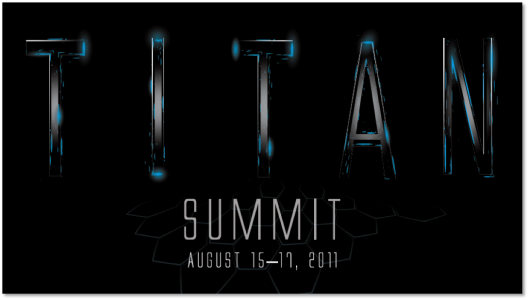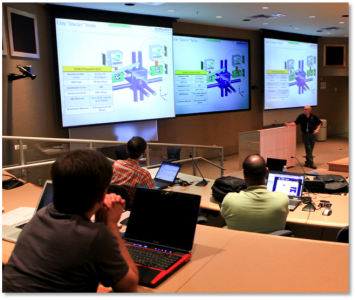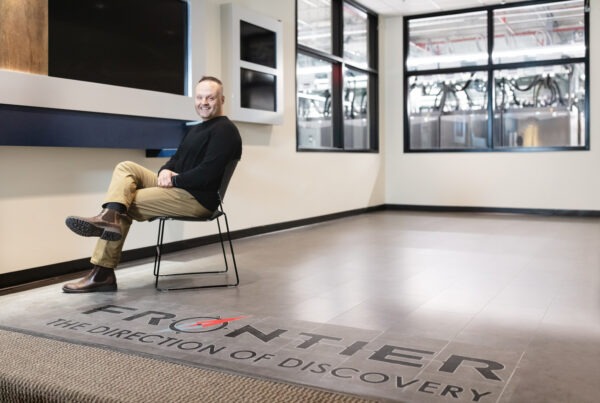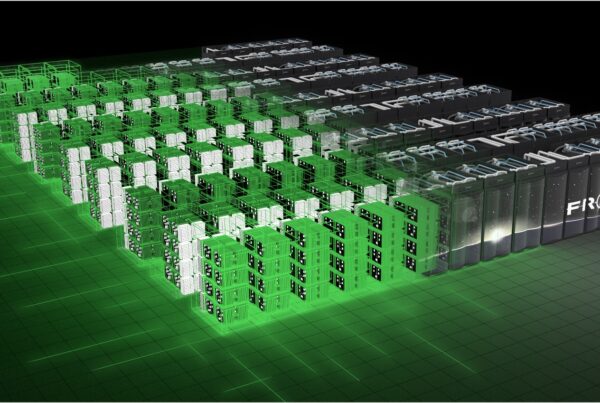OLCF staff and researchers are preparing for more powerful science applications
 Users, vendors, and OLCF staff got a chance recently to share plans and information regarding the OLCF’s next major system, Titan. The Titan Summit workshop held August 15–17, 2011, covered the evolution to the next level of high-performance computational resources, enabling more groundbreaking research in climate, energy creation and storage, biology, chemistry, astrophysics, and materials.
Users, vendors, and OLCF staff got a chance recently to share plans and information regarding the OLCF’s next major system, Titan. The Titan Summit workshop held August 15–17, 2011, covered the evolution to the next level of high-performance computational resources, enabling more groundbreaking research in climate, energy creation and storage, biology, chemistry, astrophysics, and materials.
The OLCF’s current leadership system, Jaguar, will evolve into Titan, with significant differences. In particular, the upgraded machine will be a CPU/GPU (central processing unit/graphics processing unit) hybrid system, expected to perform up to 20 thousand trillion calculations per second (20 petaflops) and reach up to nine times the performance of Jaguar. By using the summit to bring together users and vendors, OLCF staff were able to discuss expectations and plans for the new system.

Attendees of the OLCF's Titan Summit learn more about the new system's features from Cray's John Levesque.
“Discovering different levels of parallelism in their code will be important as the community moves to exascale computing by the end of the decade,” said Robert Whitten, OLCF training and education coordinator and organizer of the summit. “The overriding theme of the Titan Summit was the usability of Titan. Users learned that their current codes could run on Titan with little or no modifications. They also learned that by using the provided tools, they could reap increased performances with little to no hand coding within the CUDA programming framework. Using available tools, users will be able to make full use of GPUs that will be in the machine, with as little as two lines of additional code.”
On the summit’s first day, ORNL staff presented case studies and methods for exposing parallelism in code. Vendors spoke on the second day, focusing on compilers, debuggers, and optimizers—software to help users with codes. On the final day, users talked about their applications and research topics.
With the advantage of webcasting, three of the 22 lecturers were able to present remotely. Twenty attendees were also off-site, three of them abroad. The 63 attendees included current users, industry representatives, and personnel from National Science Foundation and Department of Energy facilities.
A January 2012 workshop on Titan is also being prepared. Information on future workshops will be available on the OLCF website.
—by Sandra Allen McLean





